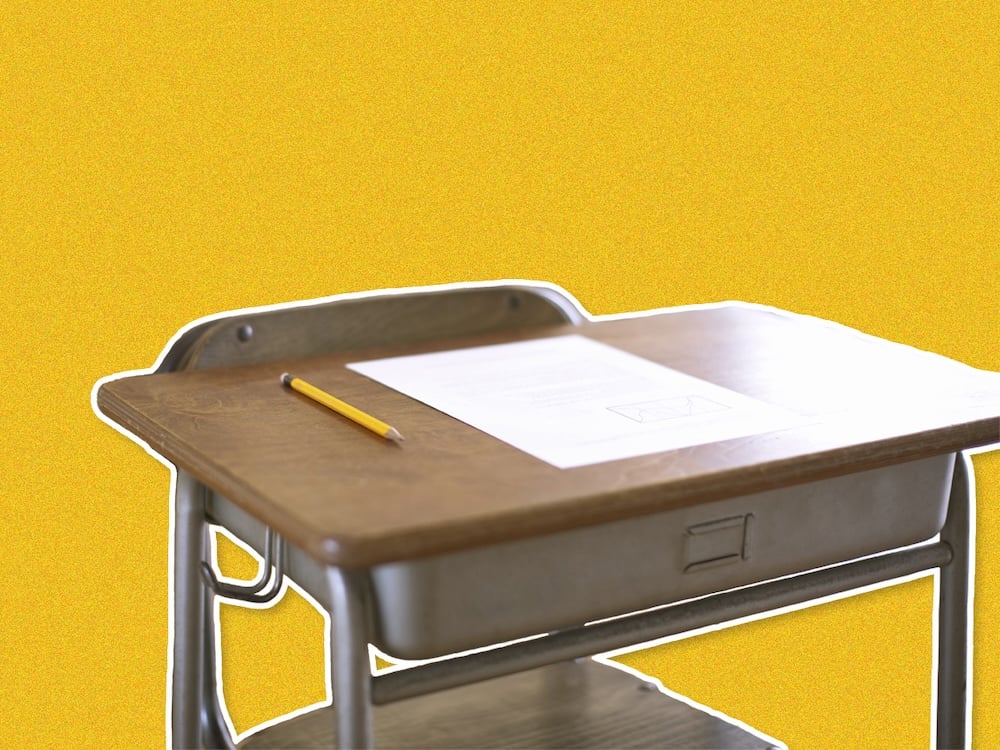Education
Canadian Education Expert Addresses Key Challenges Facing Public Schools

Concerns surrounding public education in Canada have intensified, particularly regarding student absences, race-based data, and the role of private schools. In a recent interview, academic Kelly Gallagher-Mackay shared her insights on these pressing issues, emphasizing their significance for the future of education in the country.
Gallagher-Mackay, a prominent researcher based in Ontario, has devoted her career to understanding the dynamics of public education. She highlighted alarming trends observed during the 2020-2021 school year, which saw increased absenteeism among students. This rise, she explained, is not merely a symptom of the pandemic but reflects deeper socio-economic challenges faced by many families.
Exploring Student Absences
The issue of student absences has come to the forefront of educational discourse. Gallagher-Mackay noted that certain demographics, particularly those from marginalized communities, experienced disproportionately high rates of absenteeism. According to her research, these disparities were exacerbated by the pandemic, revealing systemic inequities within the education system.
Statistics Canada reported that during the peak of the pandemic, up to 30% of students in some urban areas were missing from classrooms. Gallagher-Mackay emphasized that addressing these absences requires a multi-faceted approach, including enhanced support services and community engagement.
She argued that simply attributing absenteeism to individual student choices overlooks the broader societal factors at play. “We need to examine the root causes,” she stated, “and ensure that all students have equal access to education.”
The Role of Race-Based Data
Another critical aspect of the conversation is the use of race-based data in education policy. Gallagher-Mackay advocates for the collection and analysis of such data to better understand the challenges faced by different groups. She argues that without it, policymakers cannot make informed decisions that address the needs of all students.
“Race-based data allows us to pinpoint disparities,” Gallagher-Mackay explained. “It provides a clearer picture of who is being left behind and why.” This data-driven approach, she believes, can lead to more equitable educational outcomes.
Moreover, Gallagher-Mackay discussed the impact of private schools on public education. She highlighted that while private institutions often demonstrate higher academic performance, they do so at the cost of increased segregation within the education system. The rise of private schools has led to concerns about resource allocation and equity for public schools.
“The existence of private schools can create a two-tier education system,” she noted. “This ultimately undermines the principle of equal opportunity that public education is meant to uphold.”
Gallagher-Mackay’s insights underscore the urgent need for comprehensive education reform in Canada. As the country continues to navigate the aftermath of the pandemic, the challenges highlighted in her research must be addressed to ensure that all students receive a quality education.
In conclusion, the conversation surrounding public education is more critical than ever. With experts like Kelly Gallagher-Mackay leading the charge, there is hope for meaningful change that prioritizes equity and accessibility for all Canadian students.
-

 Science2 months ago
Science2 months agoToyoake City Proposes Daily Two-Hour Smartphone Use Limit
-

 Health2 months ago
Health2 months agoB.C. Review Reveals Urgent Need for Rare-Disease Drug Reforms
-

 Top Stories2 months ago
Top Stories2 months agoPedestrian Fatally Injured in Esquimalt Collision on August 14
-

 Technology2 months ago
Technology2 months agoDark Adventure Game “Bye Sweet Carole” Set for October Release
-

 World2 months ago
World2 months agoJimmy Lai’s Defense Challenges Charges Under National Security Law
-

 Technology2 months ago
Technology2 months agoKonami Revives Iconic Metal Gear Solid Delta Ahead of Release
-

 Technology2 months ago
Technology2 months agoSnapmaker U1 Color 3D Printer Redefines Speed and Sustainability
-

 Technology2 months ago
Technology2 months agoSolve Today’s Wordle Challenge: Hints and Answer for August 19
-

 Technology2 months ago
Technology2 months agoAION Folding Knife: Redefining EDC Design with Premium Materials
-

 Business2 months ago
Business2 months agoGordon Murray Automotive Unveils S1 LM and Le Mans GTR at Monterey
-

 Lifestyle2 months ago
Lifestyle2 months agoVictoria’s Pop-Up Shop Shines Light on B.C.’s Wolf Cull
-

 Technology2 months ago
Technology2 months agoApple Expands Self-Service Repair Program to Canada









